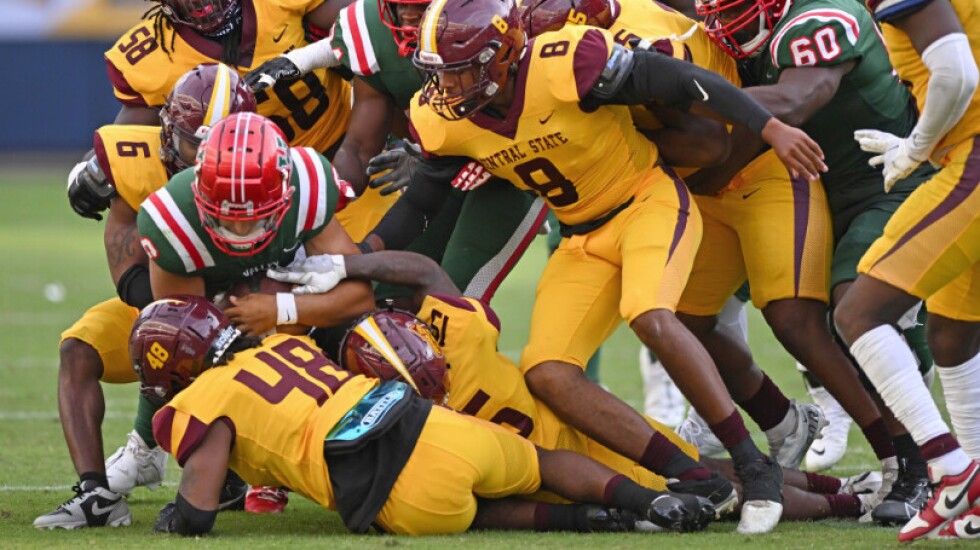
When Larry Huggins and brothers Everett and Tim Rand attended the 1997 Circle City Classic in Indianapolis and saw hotels and restaurants filled with visitors, they saw the economic impact the event had on the city. As businessmen, they also saw an opportunity for Chicago. But Huggins said he realized the Classic was about more than money.
“We found out it was more about when these kids come into the game, when these kids start going to HBCUs (Historically Black Colleges and Universities), and the history has stayed close to this game,” Huggins said.
The Chicago Football Classic, a not-for-profit organization that provides support for programs and initiatives that help increase the educational opportunities for students, returned for the first time since 2019 as Central State defeated Mississippi Valley State 24-21 on Saturday at Soldier Field. The game serves as the headliner, but the impact of the event is felt more off the field.
Since 1997, the Chicago Football Classic Scholarship Fund has awarded over $1 million in scholarships, a large portion coming from the football game. Each year, the fund awards 20 students a $5,000 scholarship. The weekend exposes students in the Chicagoland area to HBCU culture with events such as the HBCU College and Career Fair, battle of the high school bands and a tailgate.
“I spent the first 10 years of my working life as a teacher, and as a teacher we encourage our students to go to HBCUs,” Cook County Board President Toni Preckwinkle said. “We believe that our young people were more likely to find mentors and people who would look out for them and make sure that they got over the finish line at an HBCU than the majority institution.”
Outside of Soldier Field, adults wore HBCU jerseys and shirts of their alma maters, proudly representing their institutions or fraternities. Chicago State is the lone HBCU near Chicago. Ninety percent of HBCUs are located in the south, according to the U.S. Census Bureau.
Huggins estimated 1,000 students were set to attend the career fair and have face-to-face interactions with college recruiters from about 35 schools.
“Exposure is the key,” said Robbie Jewell, who’s a Jackson State graduate and teacher at DuBois Elementary. “If we don’t start early, they don’t know.”
Jewell, a Detroit native, said being around people who cared for her helped her acclimate to college life and hold her accountable when she wasn’t showing up for her early-morning history class during her freshman year.
“I’ll never forget when Dr. Weaver said, ‘Your mom didn’t send you down here for this. Let’s go,’ ” Jewell said. “He said, ‘You need to beat me to my class, but you stayed out all night and you can’t get up and go to business of why you’re here.’ At that moment, I felt at home.”
“Florida A&M University provided me with the tools to get over adversity and different hurdles in life,” said Kevicia Brown, the Central State athletic director. “It gave me strength and provided me with an awesome education. You can’t compare it to anywhere else.”
Jewell said that visibility is important and “it makes her feel wonderful” to receive questions from her students about her alma mater and other colleges.
“If they’re asking, then they’re entertaining the thought of going further,” Jewell said, “and it’s not going to stop in the neighborhood because though my elementary school is in the projects, it doesn’t mean that they can’t go for them as far as the next person.”







